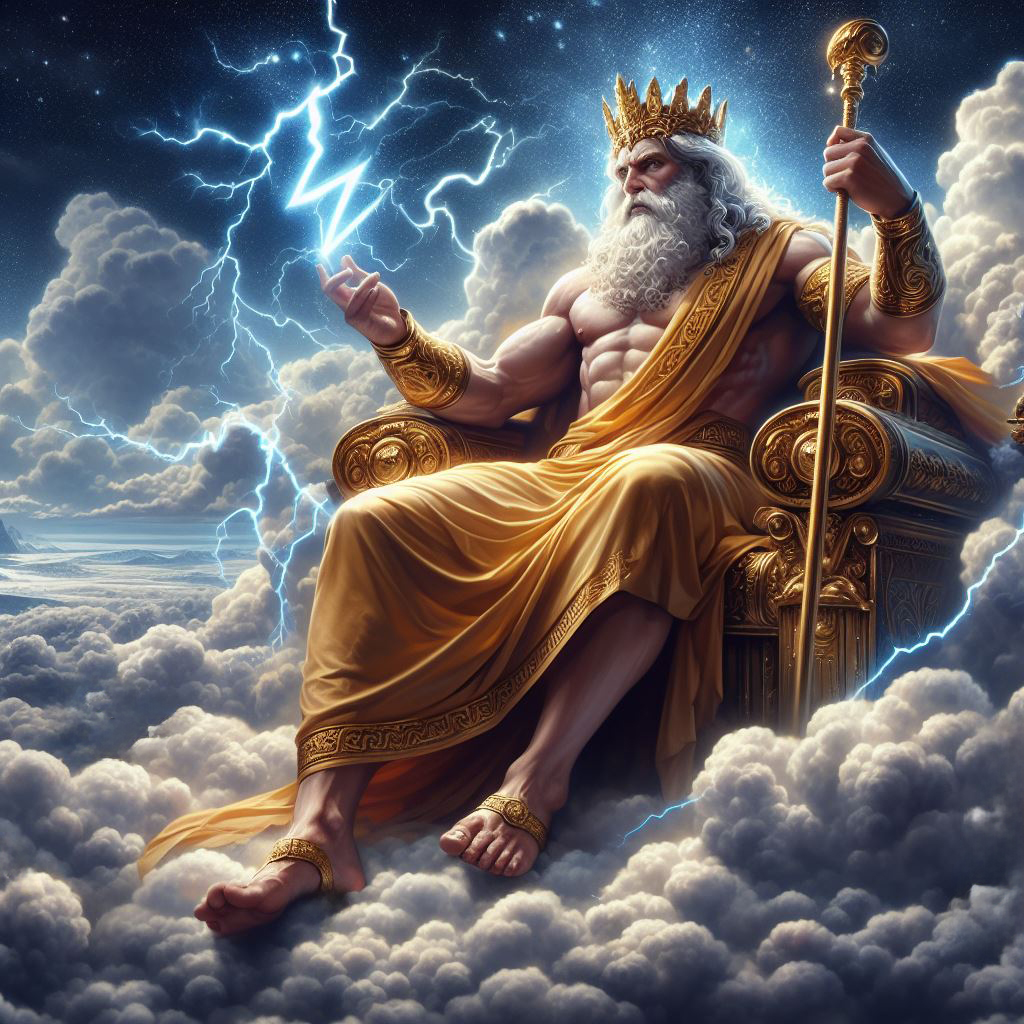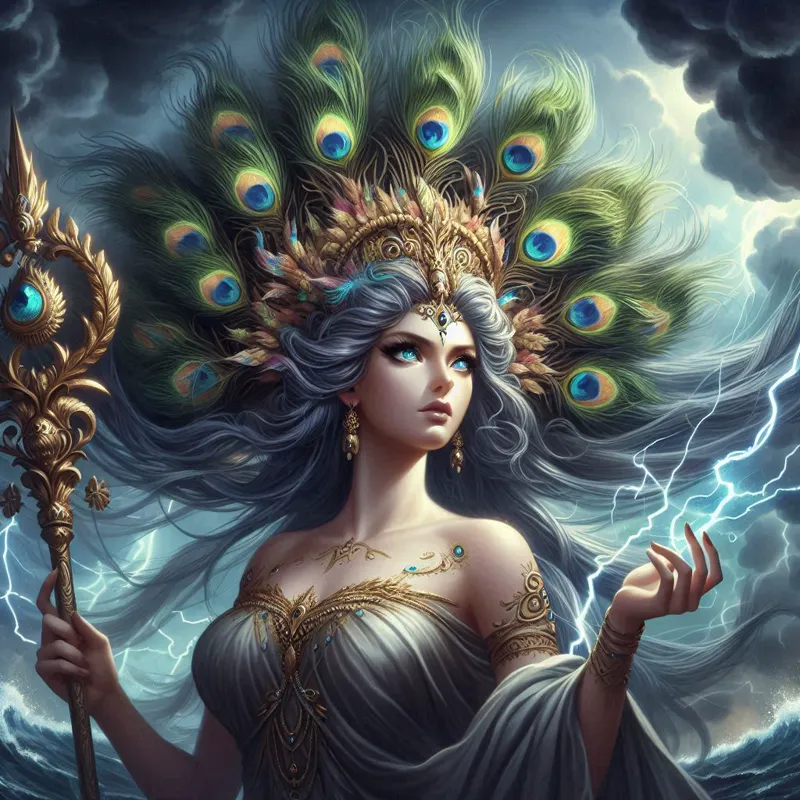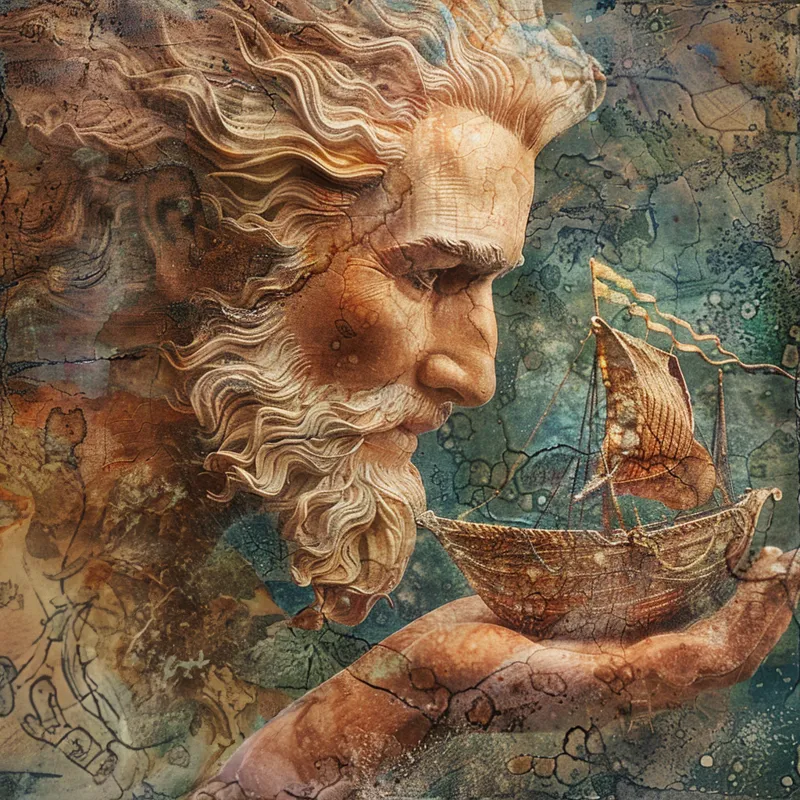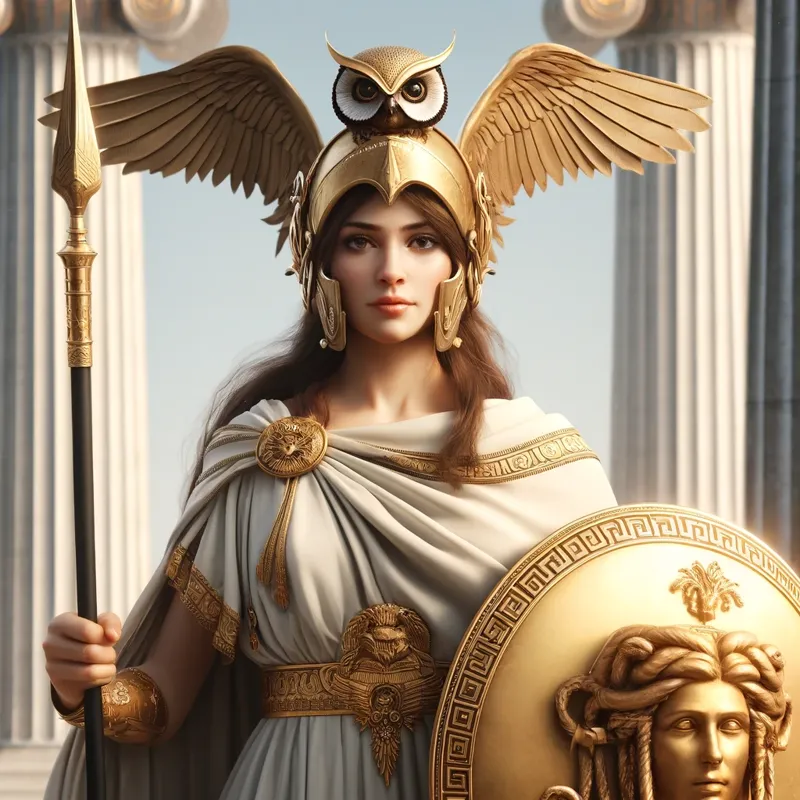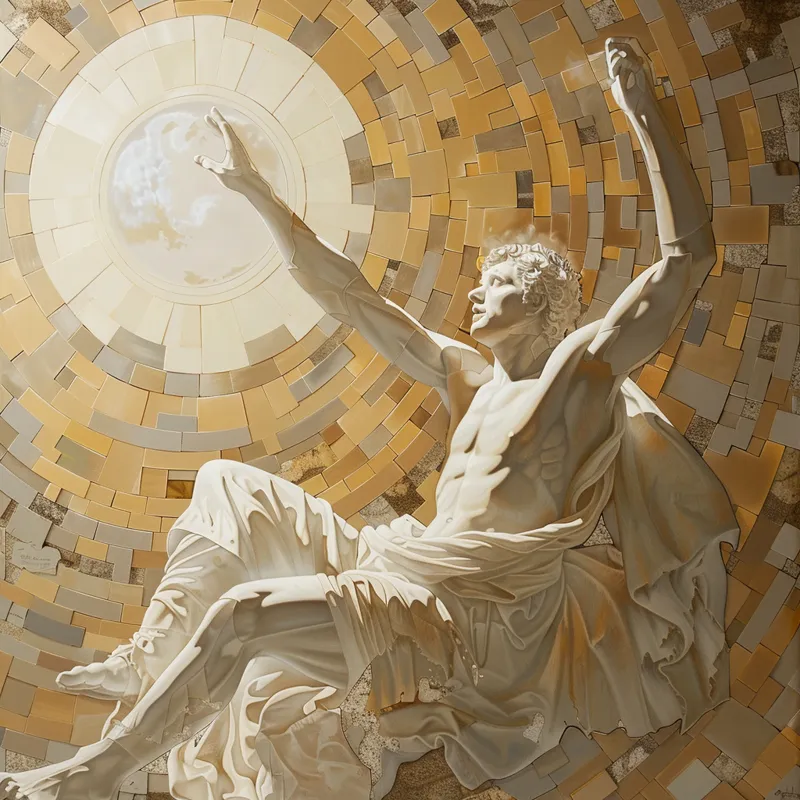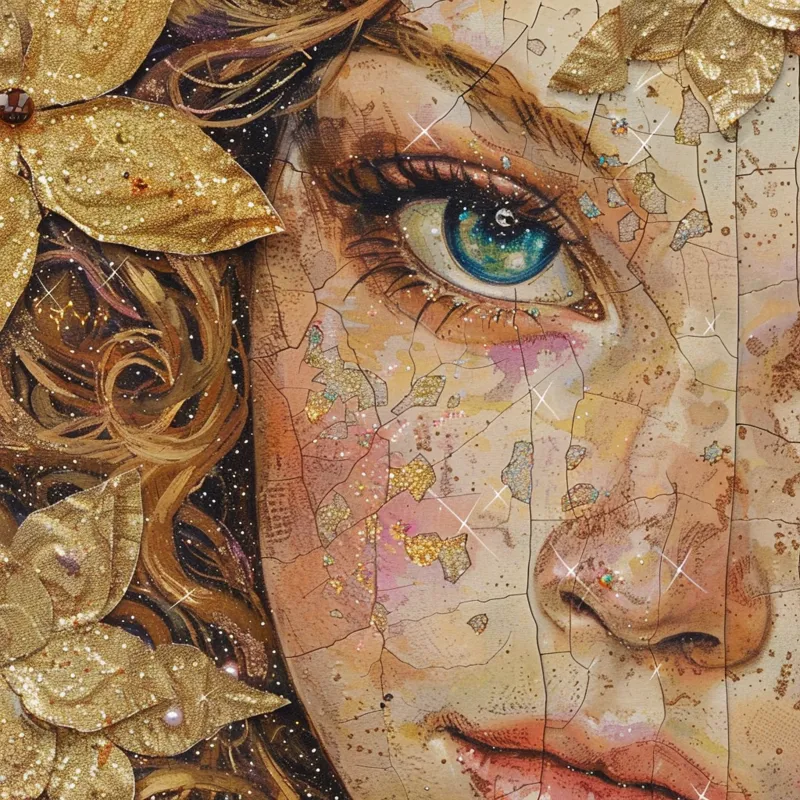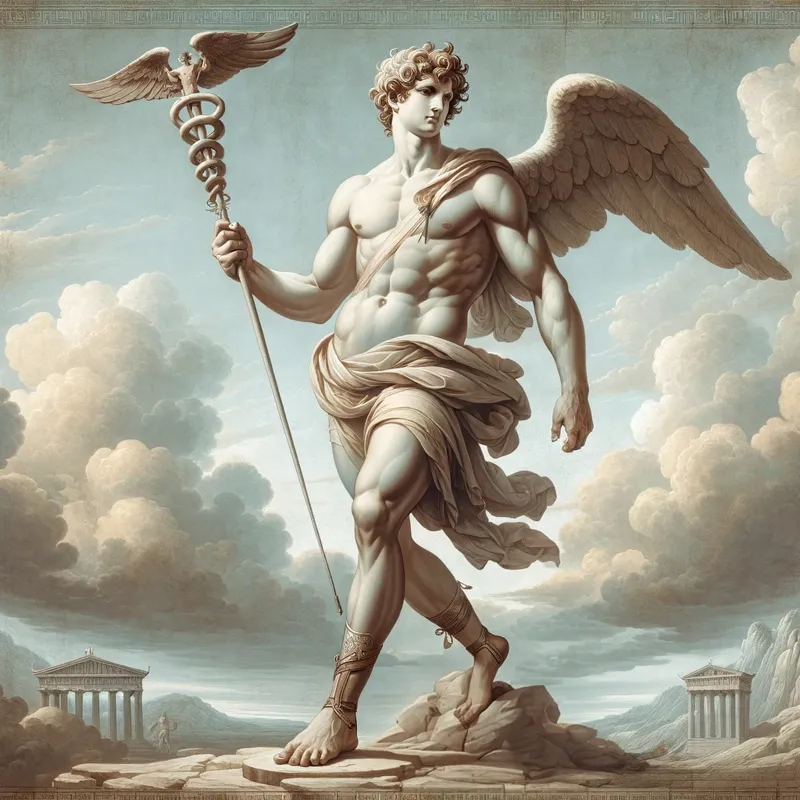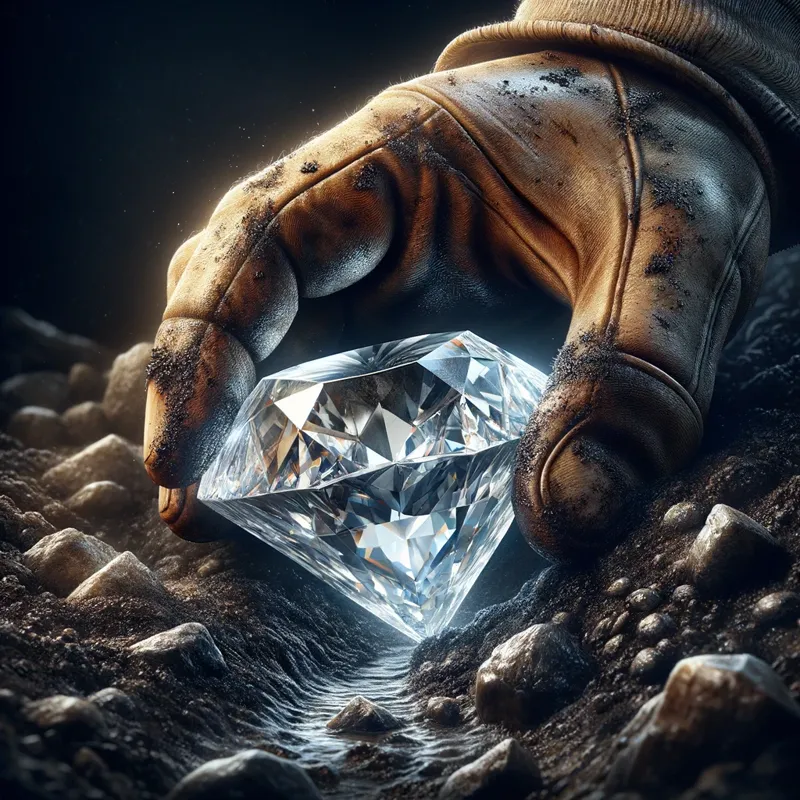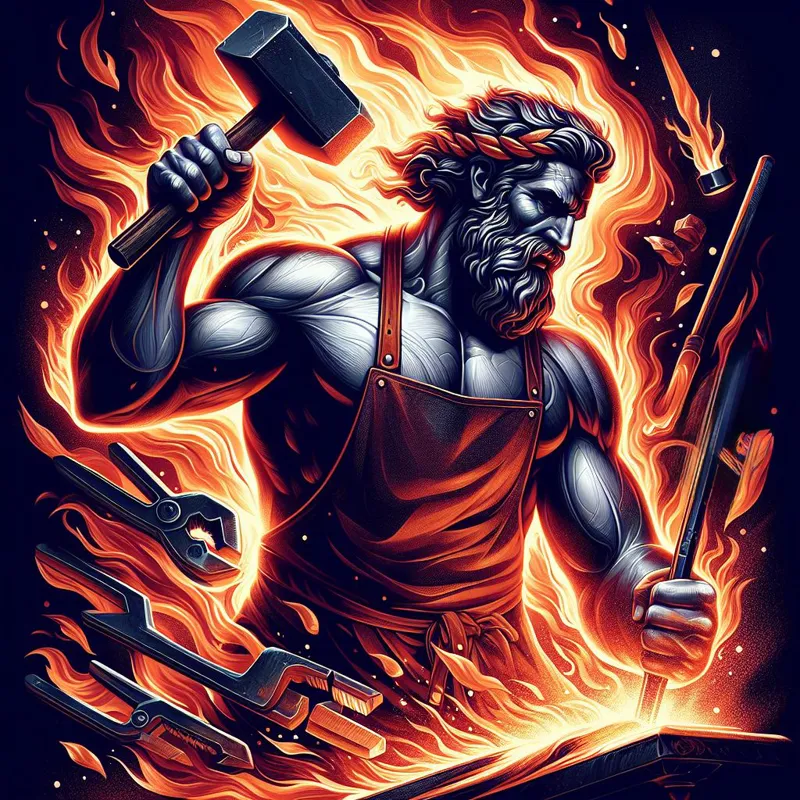
By fire be reforged
Hephaestus, the god of fire, metalworking, stone masonry, forges, and the art of sculpture, holds a unique position among the deities of Greek mythology. Known for his craftsmanship, Hephaestus created some of the most iconic items in the Greek pantheon, including the thunderbolts of Zeus and the armor of Achilles.
Unlike the other gods, Hephaestus was depicted as lame, which added a layer of complexity to his character, challenging the typical portrayal of divine perfection. This narrative explores Hephaestus' origins, his significance in mythology, his relationships with other gods and mortals, and his enduring legacy in seven distinct sections.
Origins and Birth
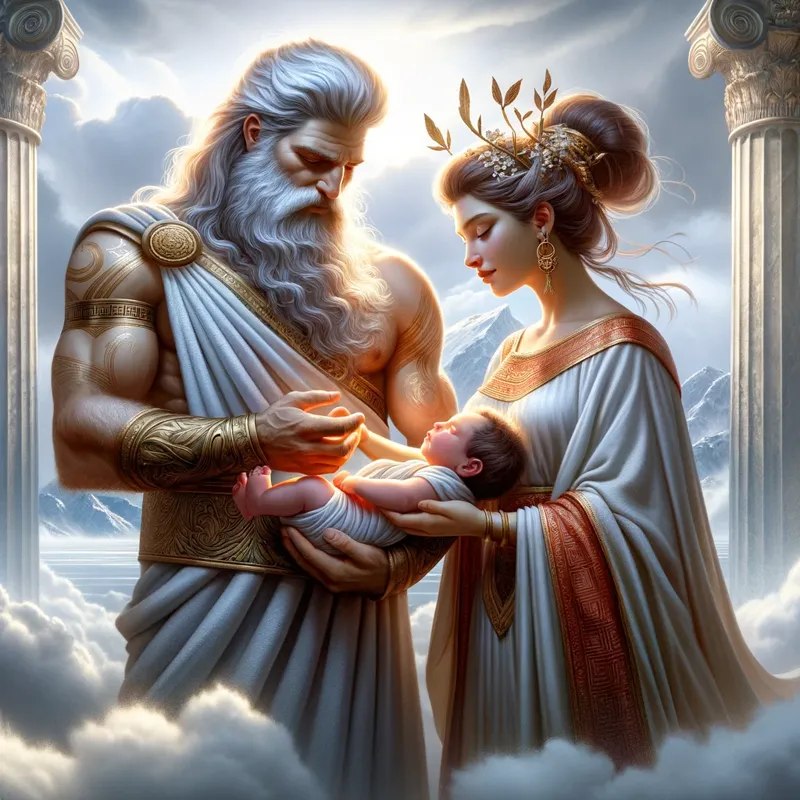
When we ask for strength...
Hephaestus' birth is a tale of intrigue and complexity, reflective of the tumultuous relationships among the Olympian gods. He is most commonly recognized as the son of Zeus, the king of the gods, and Hera, the queen of the gods, although some myths suggest he was born from Hera alone, in retaliation for Zeus giving birth to Athena without her. This version of his birth highlights the ongoing power struggles and the desire for independence and individual achievement among the gods.
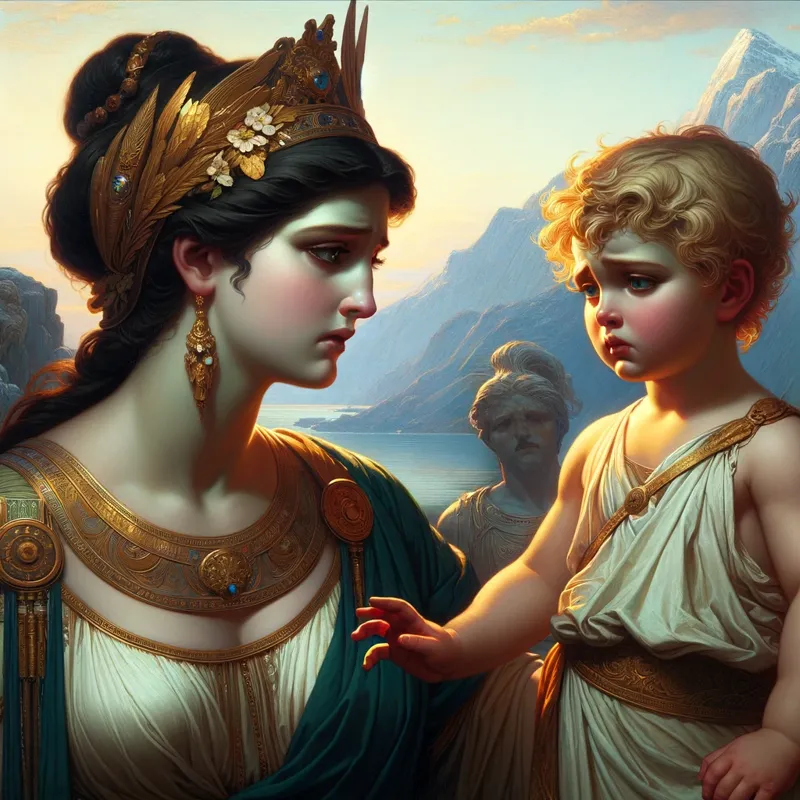
...we get struggles to make us stronger
The circumstances of Hephaestus' descent from Olympus further illuminate the intricate dynamics within the divine family. After being born, he was cast out of heaven by Hera, disgusted by his physical imperfection, or, in another version, by Zeus, for taking Hera's side in an argument. This fall from Olympus not only signifies the challenges Hephaestus faced from the moment of his birth but also sets the stage for his role as a bridge between the divine and the mortal worlds, embodying themes of resilience and redemption.
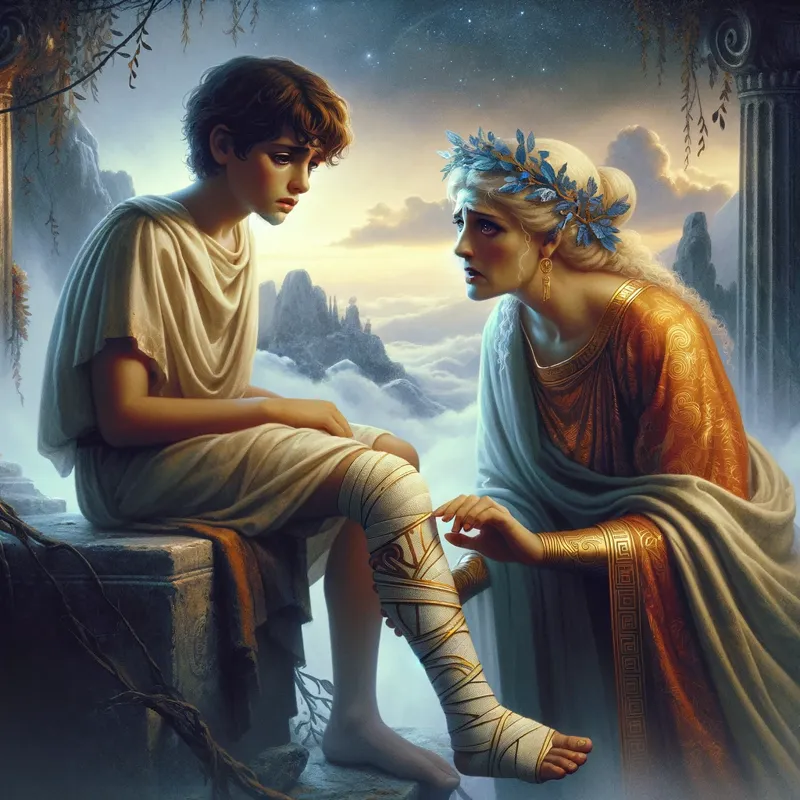
'We' create definitions
The Forge and Creations

The pit of emptiness
Central to Hephaestus' identity is his forge, a divine workshop where he crafted the tools, weapons, and beautiful adornments for the gods and heroes of Greek mythology. His forge is often depicted as being located under a volcano, with the cyclopes serving as his assistants. This setting highlights the raw power and the transformative nature of fire, which Hephaestus masterfully controlled to create objects of immense power and beauty.
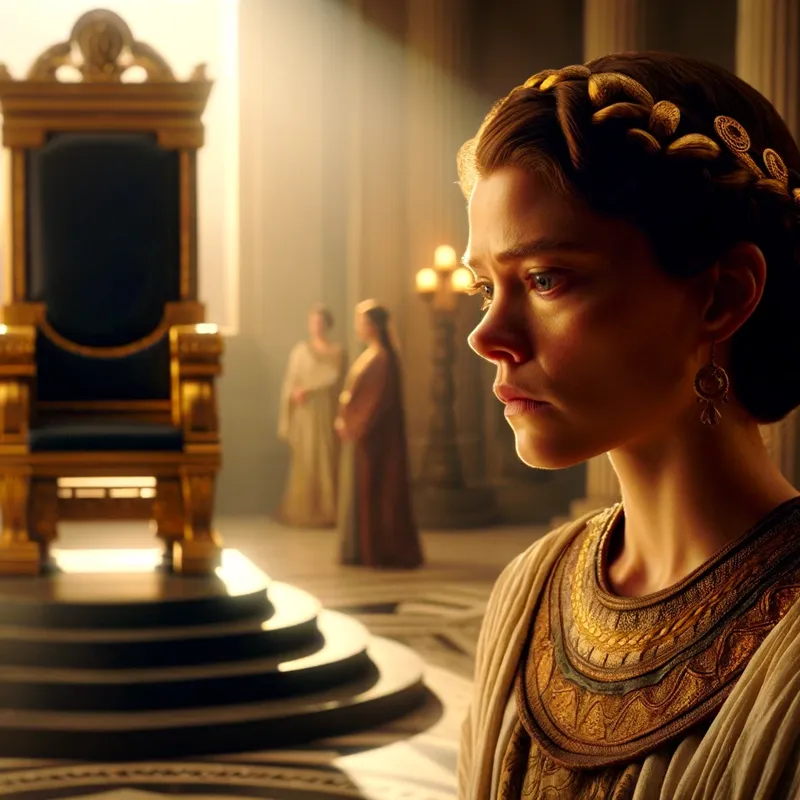
How do we measure our worth to ourselves?
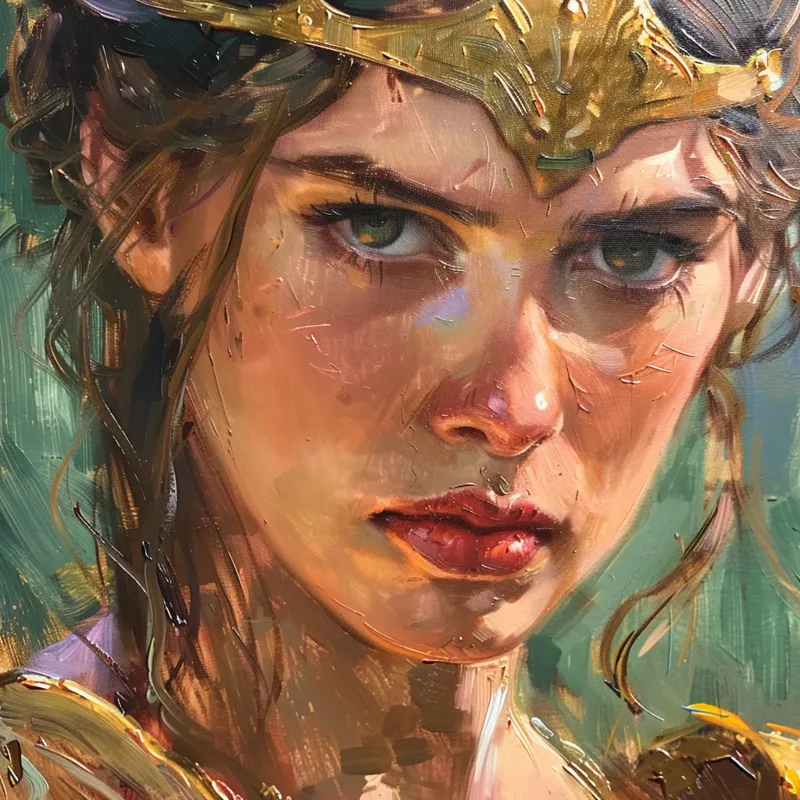
...
Among his creations were the thunderbolts of Zeus, which became symbols of divine power and justice, and the armor of Achilles, which played a crucial role in the Trojan War. Hephaestus also crafted the first woman, Pandora, on Zeus' instruction, as part of the punishment for humanity's possession of fire. These creations underscore Hephaestus' unparalleled skill and the significant impact of his work on the lives of gods and mortals alike, weaving his influence throughout Greek mythology.

Get out!
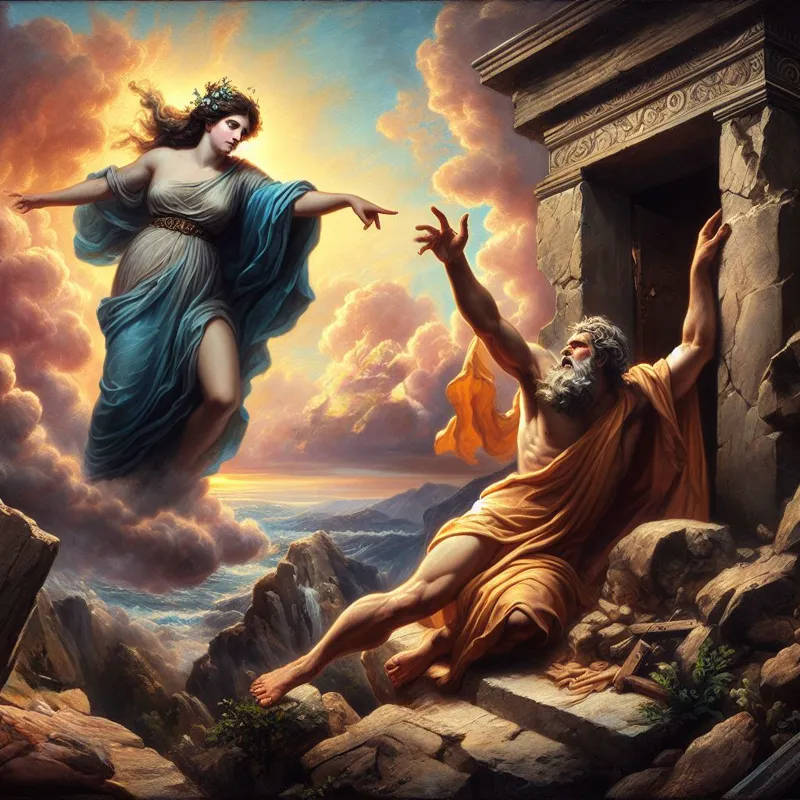
Foolish man
Marriage to Aphrodite

O cruel fate
Hephaestus' marriage to Aphrodite, the goddess of love and beauty, is a story rich with irony and complexity. Despite his own physical imperfections, Hephaestus was married to the epitome of beauty, a union that was arranged by Zeus with the intent of preventing conflict over Aphrodite's hand in marriage. This pairing highlights the contrast between external beauty and internal worth, a recurring theme in mythological narratives.

Fury of the volcano
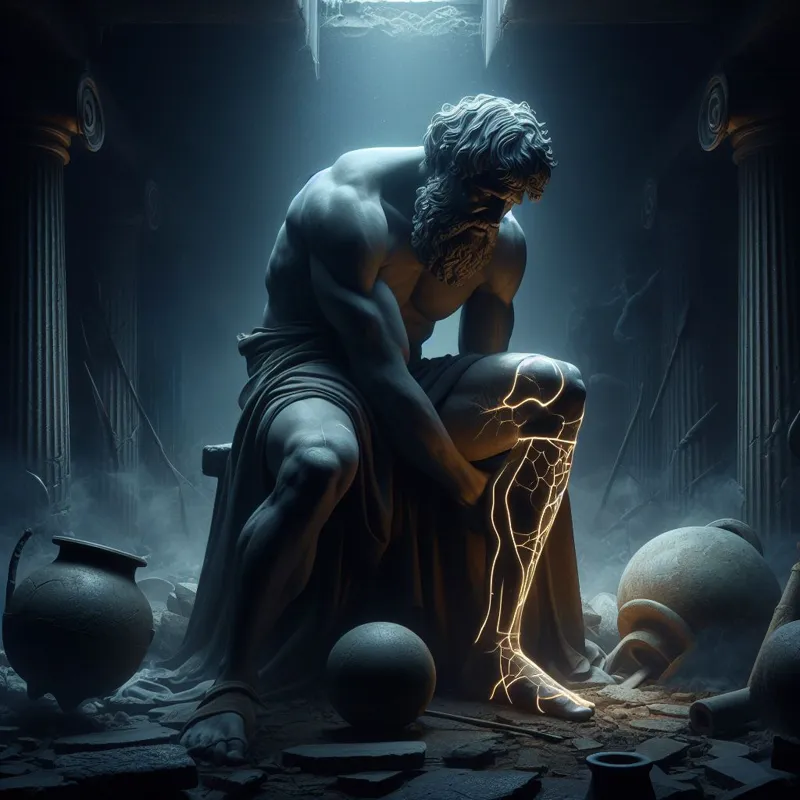
My leg is lame but my mind isn't
The marriage was famously troubled, marked by Aphrodite's numerous affairs, most notably with Ares, the god of war. Hephaestus' response to these betrayals—crafting ingenious traps to catch the lovers in the act—demonstrates his cleverness and inventiveness, even in the face of personal betrayal. These stories not only entertain but also offer insight into the complexities of relationships and the enduring human themes of love, jealousy, and retribution.

God of fury, God of struggle, God of ingenuity
Relationship with Mortals
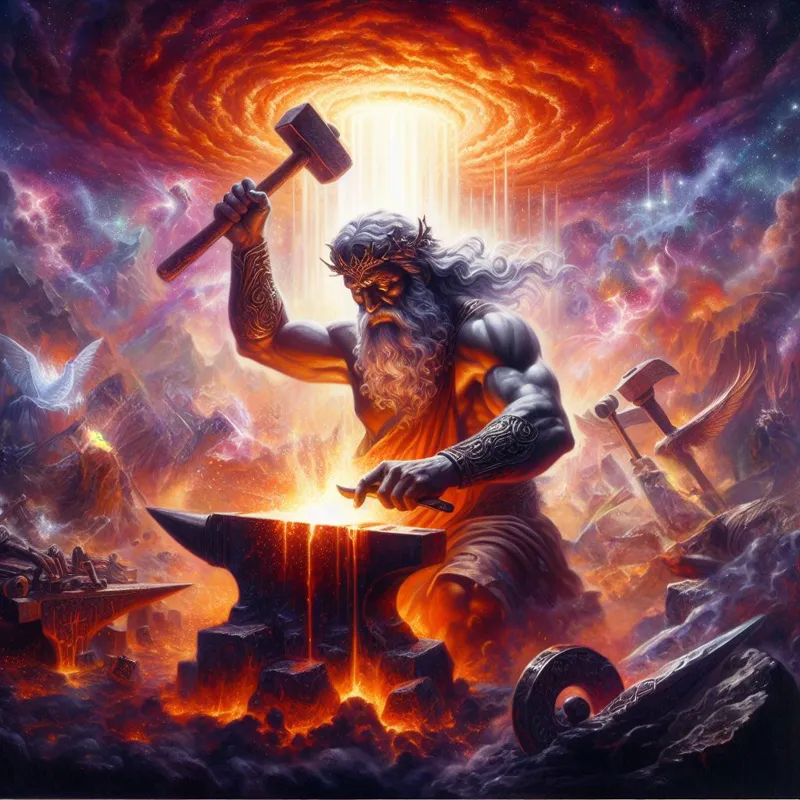
The heart of a volcano...
Hephaestus' interactions with mortals are particularly noteworthy, as he is often portrayed as a benefactor to humanity, teaching them the secrets of metalworking and craftsmanship. This role as a teacher and protector of mortals sets him apart from many of the other Olympian gods, who were often indifferent or hostile towards humans. Hephaestus' favor towards mortals is perhaps best exemplified by his assistance to the hero Prometheus in the theft of fire, an act that enabled the progress of civilization but also led to Prometheus' eternal punishment.
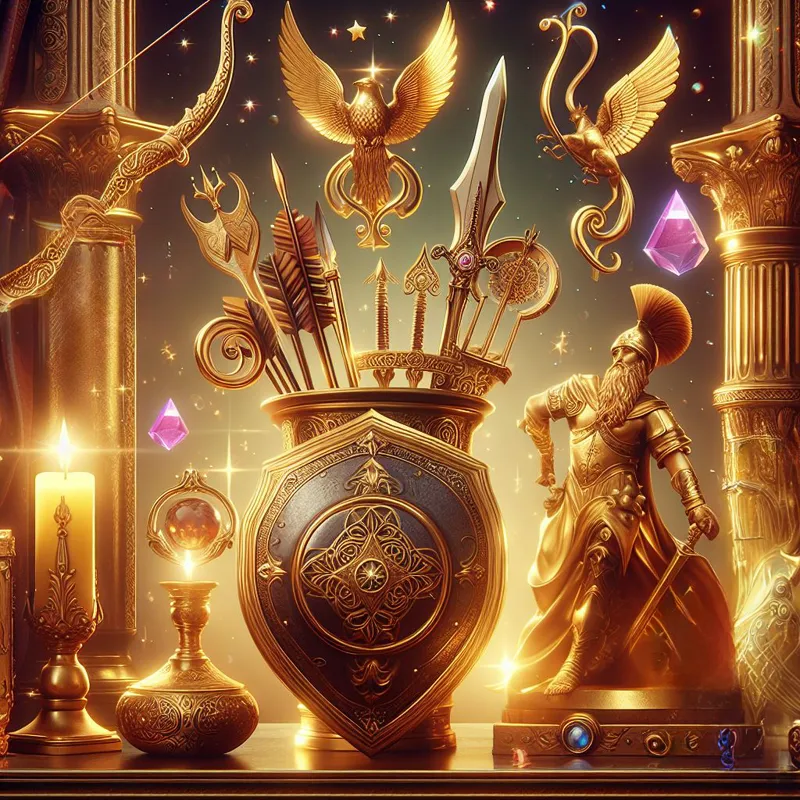
...is where magic comes from
Moreover, Hephaestus' own experiences of rejection and hardship engendered a sense of empathy towards humans, making him a more relatable and compassionate figure within the pantheon. His willingness to aid heroes like Perseus and Theseus with gifts of magical weapons further cements his legacy as a deity who bridged the divine-mortal divide, using his skills for the betterment of mankind.
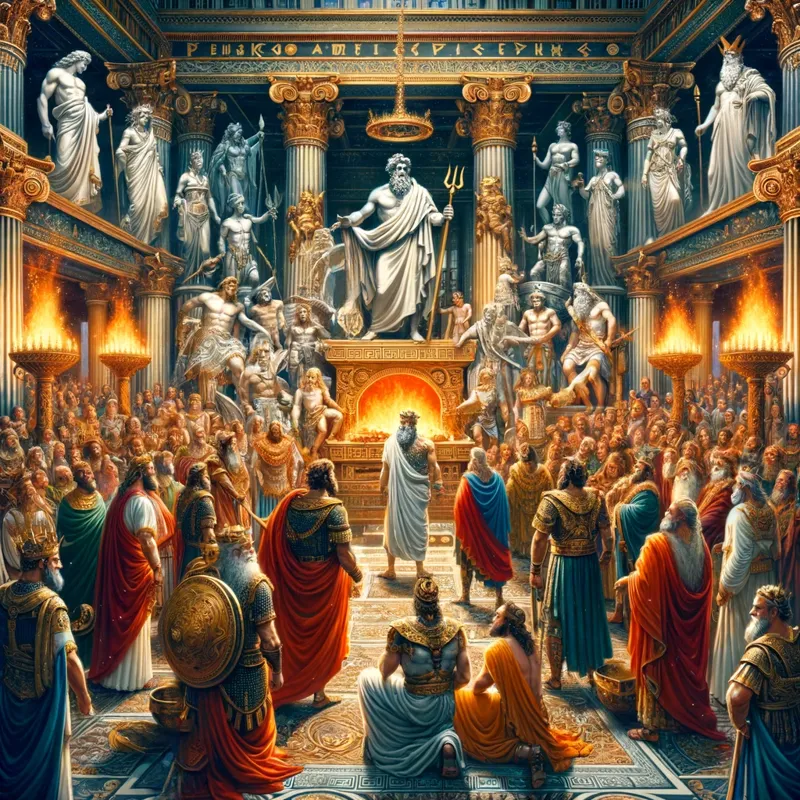
The best blacksmith that ever was
The Fall and Return to Olympus

Long way home
The narrative of Hephaestus' fall from Olympus and his subsequent return is a powerful story of resilience and redemption. After being cast out by his mother Hera, Hephaestus' fall from the heavens ended when he landed on the island of Lemnos, where he was taken in and cared for by the Sintians. Despite his initial humiliation and physical injuries, Hephaestus flourished on Lemnos, establishing his forge and beginning his legacy as a master craftsman.
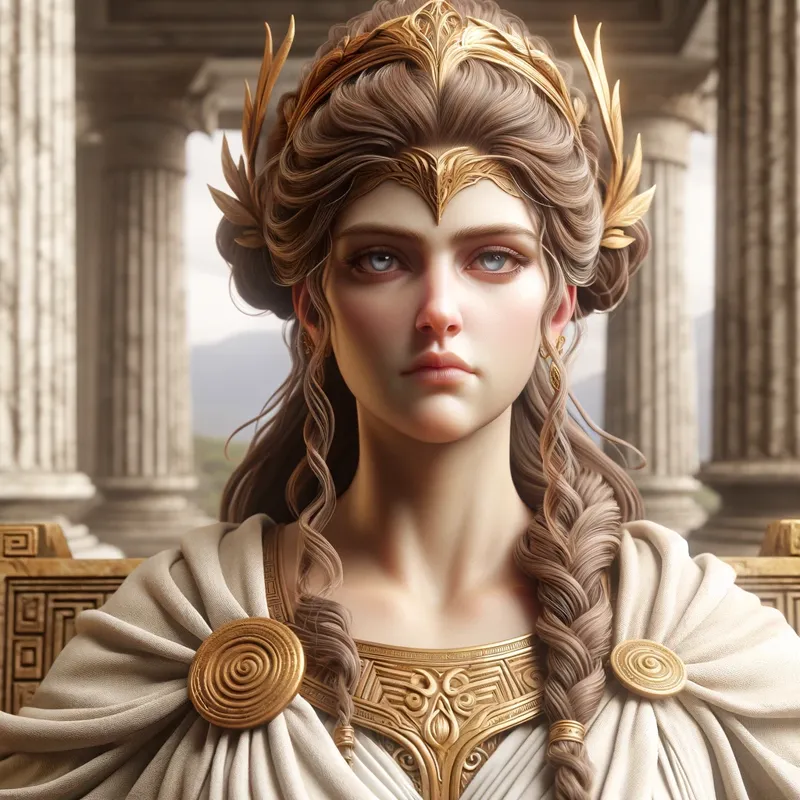
You've come seeking answers
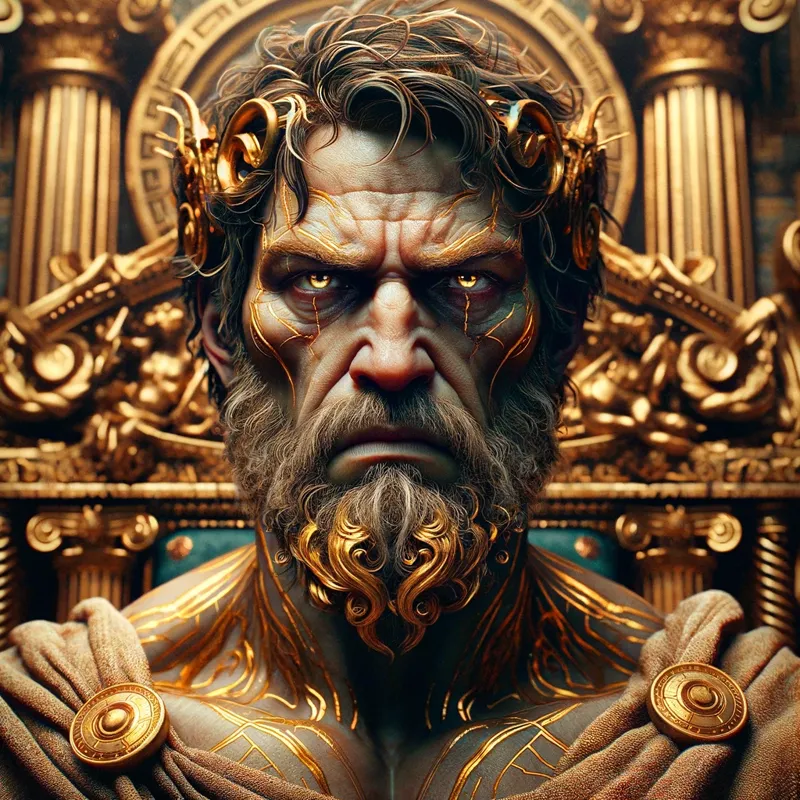
...
His return to Olympus came about through a combination of cunning and craftsmanship. Hephaestus crafted an exquisite throne for Hera, which trapped her upon sitting. It was only after Dionysus, the god of wine, got Hephaestus drunk and persuaded him to free Hera, that he was welcomed back to Olympus, not as a victim but as a revered god. This return not only signifies Hephaestus' reconciliation with his divine family but also marks his acceptance, transcending his physical limitations and past grievances to reclaim his rightful place among the gods.
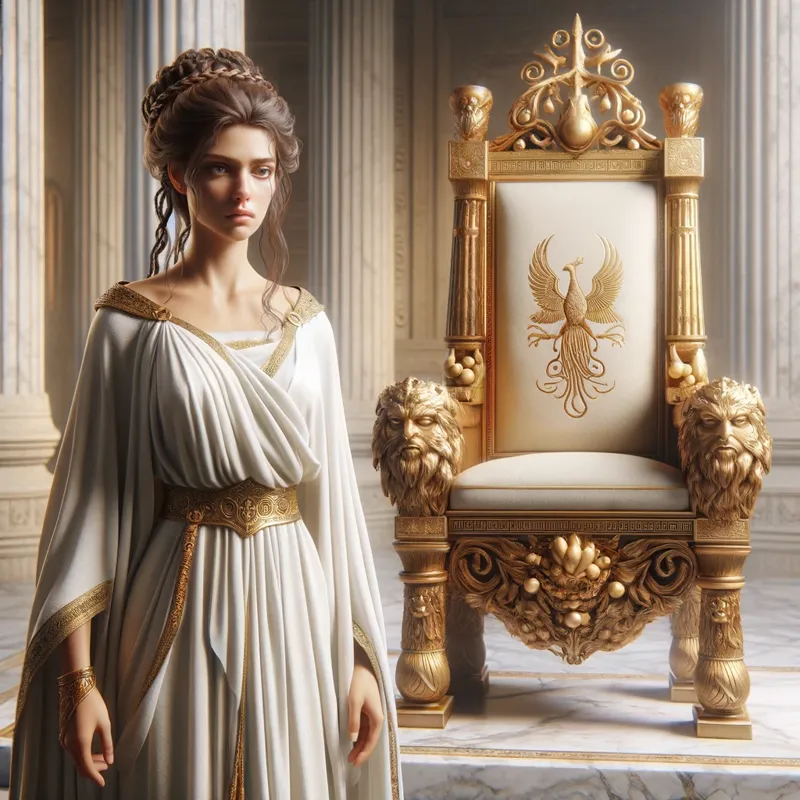
You've changed so much
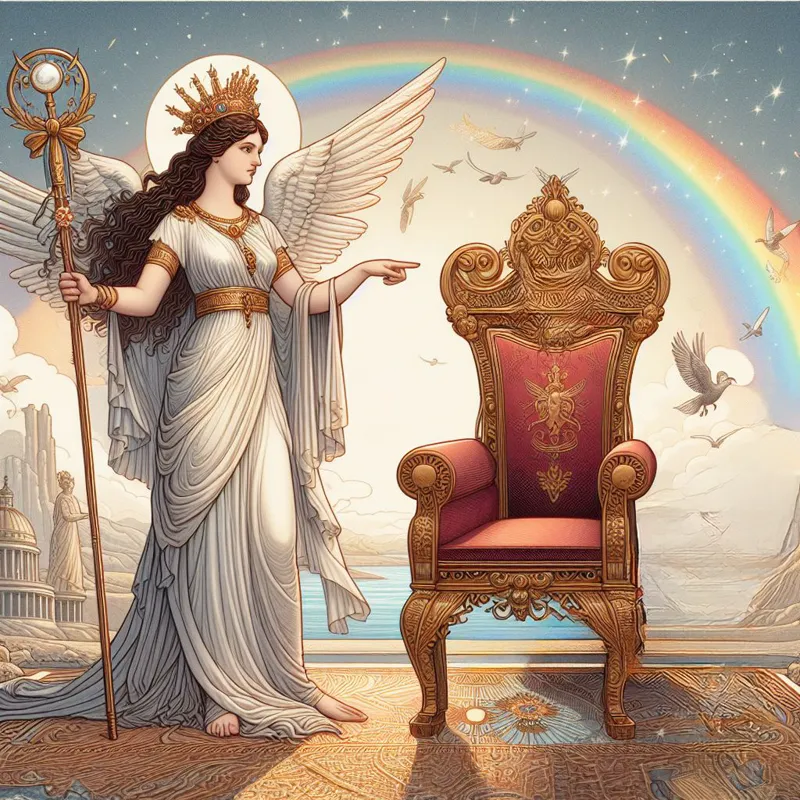
The final test
Legacy in Art and Culture
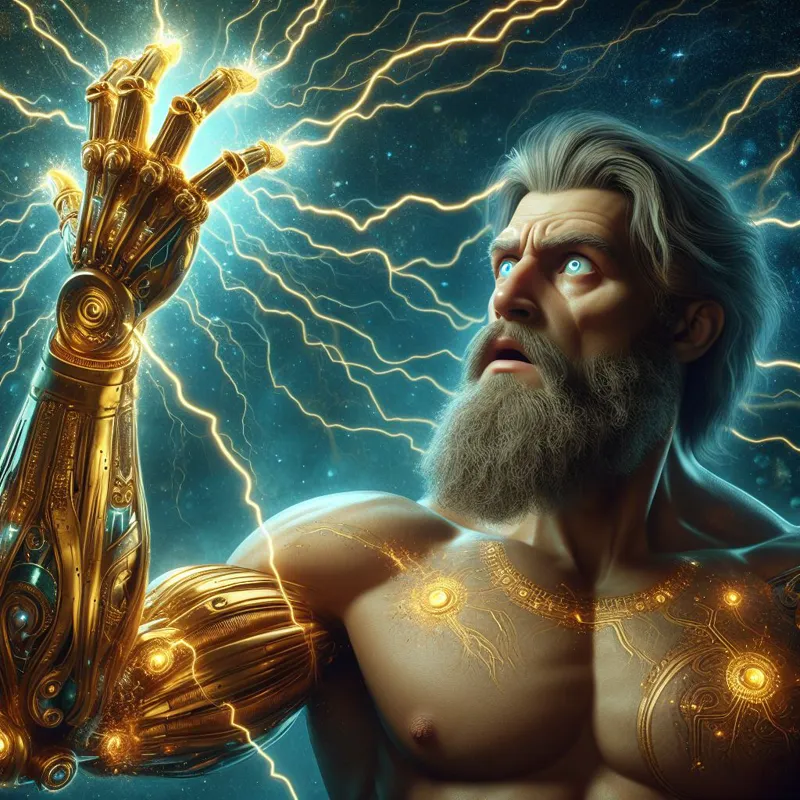
The power of a god
Hephaestus' impact extends far beyond the ancient myths, influencing art, literature, and culture throughout the centuries. In ancient Greek art, he is often depicted at his forge, a symbol of creativity and the transformative power of fire. This portrayal celebrates not only his craftsmanship but also the value of labor and skill, offering a counterpoint to the traditional valorization of physical strength and martial prowess.
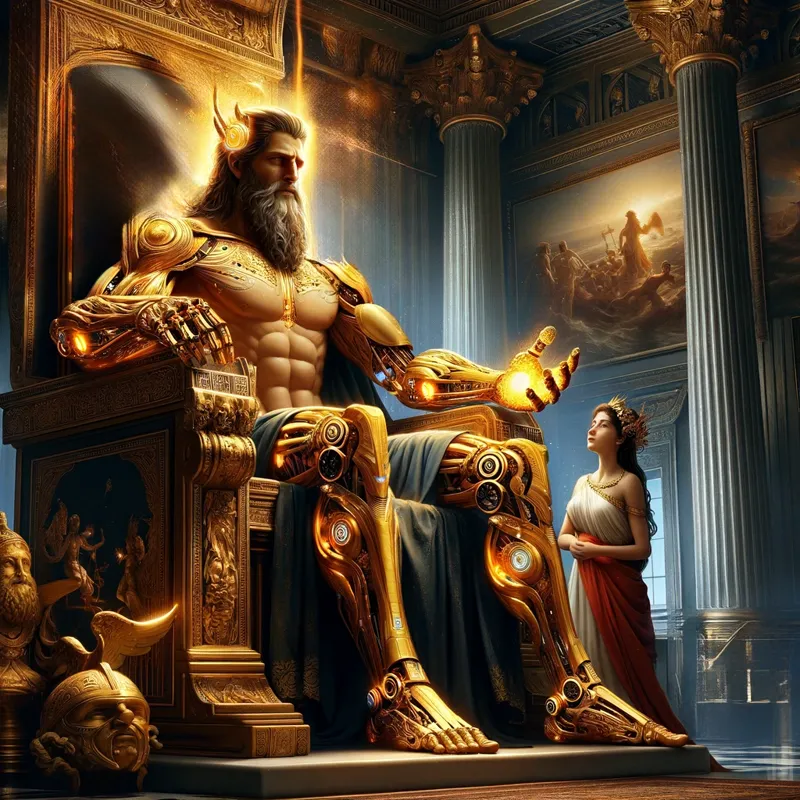
Sit the throne of forgiveness
In modern times, Hephaestus continues to inspire as a symbol of resilience, creativity, and the triumph over adversity. His story resonates with anyone who has felt marginalized or underestimated, making him a timeless figure whose legacy endures in the collective imagination. From classical sculptures to contemporary literature, Hephaestus reminds us of the importance of embracing our unique talents and the transformative potential of art and technology.

No fate, but what we make
Hephaestus, with his unparalleled craftsmanship, complex relationships, and deep connections to the human experience, remains one of the most fascinating figures in Greek mythology. His narratives explore themes of rejection, resilience, creativity, and redemption, offering insights into the human condition that are as relevant today as they were in ancient times. Through his forge, Hephaestus shaped the destinies of gods and heroes, leaving a legacy that celebrates the power of innovation and the enduring spirit of compassion and perseverance. As we reflect on his stories, Hephaestus encourages us to recognize the value of our own struggles and the beauty that can emerge from overcoming adversity.


